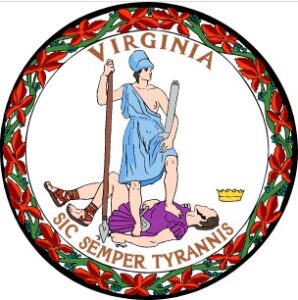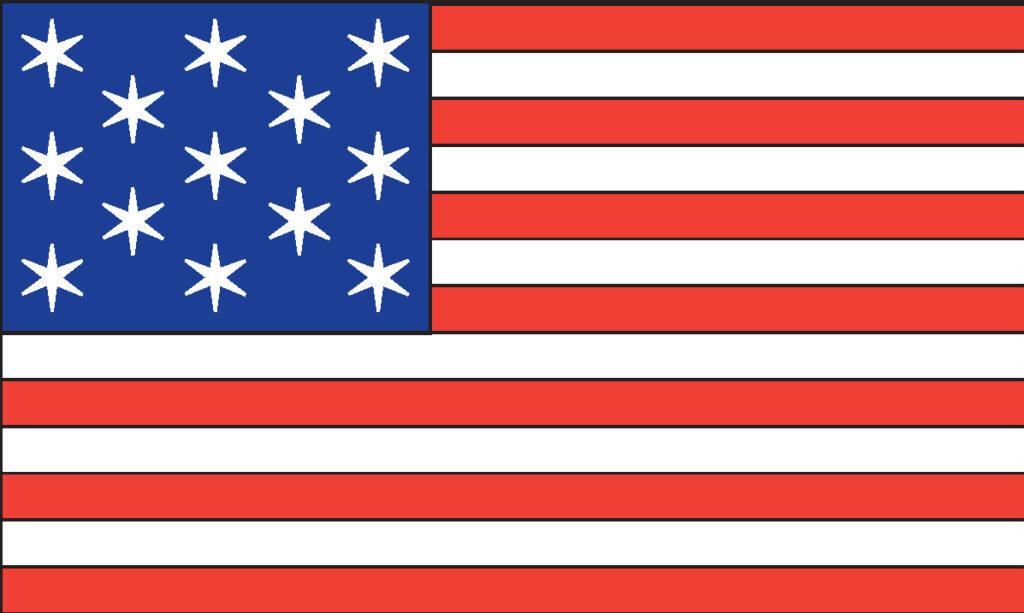The Constitutional Ratification Convention of the Commonwealth of Virginia votes (YEA, 89; NAY, 79) to conditionally ratify the proposed Constitution for the united States:
We the Delegates of the People of Virginia … declare … that the powers granted under the Constitution being derived from the People of the United States may be resumed by them whensoever the same shall be perverted to their injury or oppression. … that among other essential rights the liberty of Conscience and of the Press cannot be cancelled abridged restrained or modified by any authority: of the [u]nited States.
Subsequent Amendments agreed to in Convention as necessary to the proposed Constitution … thereof:
That there be a Declaration … of Rights asserting and securing from encroachment the essential and unalienable Rights of the People in some such manner as the following;
First, That there are certain natural rights of which men, when they form a social compact cannot deprive or divest their posterity, among which are the enjoyment of life and liberty, with the means of acquiring, possessing and protecting property, and pursuing and obtaining happiness and safety.
Second. That all power is naturally vested in and consequently derived from the people; that Magistrates, therefore, are their trustees and agents and at all times amenable to them.
Third, That Government ought to be instituted for the common benefit, protection and security of the People; and that the doctrine of non-resistance against arbitrary power and oppression is absurd slavish, and destructive of the good and happiness of mankind.
Fourth, That no man or set of Men are entitled to exclusive or separate public emoluments or privileges from the community, but in Consideration of public services; which not being descendible, neither ought the offices of Magistrate, Legislator or Judge, or any other public office to be hereditary.
Fifth, That the legislative, executive, and judiciary powers of Government should be seperate [sic] and distinct, and that the members of the two first may be restrained from oppression by feeling and participating the public burthens, they should, at fixt periods be reduced to a private station, return into the mass of the people. …
Sixth, That elections of representatives in the legislature ought to be free and frequent, and all men having sufficient evidence of permanent common interest with and attachment to the Community ought to have the right of suffrage. …
Eighth, That in all capital and criminal prosecutions, a man hath a right to demand the cause and nature of his accusation, to be confronted with the accusers and witnesses, to call for evidence and be allowed counsel in his favor, and to a fair and speedy trial by an impartial Jury of his vicinage, without whose unanimous consent he cannot be found guilty, (except in the government of the land and naval forces) nor can he be compelled to give evidence against himself.
Ninth. That no freeman ought to be taken, imprisoned, or disseised of his freehold, liberties, privileges or franchises, or outlawed or exiled, or in any manner destroyed or deprived of his life, liberty or property but by the law of the land.
Eleventh. That in controversies respecting property, and in suits between man and man, the ancient trial by Jury is one of the greatest Securities to the rights of the people, and ought to remain sacred and inviolable.
Thirteenth, That excessive Bail ought not be required, nor excessive fines imposed, nor cruel and unusual punishments inflicted.
Fourteenth, That every freeman has a right to be secure from all unreasonable searches and seizures of his person, his papers and his property; all warrants, therefore, to search suspected places, or sieze any freeman, his papers or property, without information upon Oath (or affirmation of a person religiously scrupulous of taking an oath) of legal and sufficient cause, are grievous and oppressive; and all general Warrants to search suspected places, or to apprehend any suspected person, without specially naming or describing the place or person, are dangerous and ought not to be granted. Fifteenth, That the people have a right peaceably to assemble together to consult for the common good, or to instruct their Representatives; and that every freeman has a right to petition or apply to the legislature for redress of grievances.
Sixteenth, That the people have a right to freedom of speech, and of writing and publishing their Sentiments; but the freedom of the press is one of the greatest bulwarks of liberty and ought not to be violated.
Seventeenth, That the people have a right to keep and bear arms; that a well regulated Militia composed of the body of the people trained to arms is the proper, natural and safe defence of a free State. That standing armies in time of peace are dangerous to liberty, and therefore ought to be avoided, as far as the circumstances and protection of the Community will admit; and that in all cases the military should be under strict subordination to and governed by the Civil power.
Eighteenth, That no Soldier in time of peace ought to be quartered in any house without the consent of the owner, and in time of war in such manner only as the laws direct.
Nineteenth, That any person religiously scrupulous of bearing arms ought to be exempted upon payment of an equivalent to employ another to bear arms in his stead.
Twentieth, That religion or the duty which we owe to our Creator, and the manner of discharging it can be directed only by reason and conviction, not by force or violence, and therefore all men have an equal, natural and unalienable right to the free exercise of religion according to the dictates of conscience, and that no particular religious sect or society ought to be favored or established by Law in preference to others.
The Convention also proposes 20 amendments to the Constitution proper, numbers 1, 2, 6, 8, 9, 10, 11, 12, 13, 15 and 17 of which state:
- That each State in the Union shall respectively retain every power, jurisdiction and right which is not by this Constitution delegated to the Congress of the United States or to the departments of the Federal Government.
- That there shall be one representative for every thirty thousand, according to the Enumeration or Census mentioned in the Constitution, until the whole number of representatives amounts to two hundred; after which that number shall be continued or encreased [sic] as the Congress shall direct, upon the principles fixed by the Constitution by apportioning the Representatives of each State to some greater number of people from time to time as population encreases.
- That a regular statement and account of the receipts and expenditures of all public money shall be published at least once in every year.
- That no navigation law, or law regulating Commerce shall be passed without the consent of two thirds of the Members present in both houses.
- That no standing army or regular troops shall be raised or kept up in time of peace, without the consent of two thirds of the members present in both houses.
- That no soldier shall be inlisted [sic] for any longer term than four years, except in time of war, and then for no longer term than the continuance of the war.
- That each State respectively shall have the power to provide for organizing, arming and disciplining it’s own Militia, whensoever Congress shall omit or neglect to provide for the same. That the Militia shall not be subject to Martial law, except when in actual service in time of war, invasion, or rebellion; and when not in the actual service of the United States, shall be subject only to such fines, penalties and punishments as shall be directed or inflicted by the laws of its own State.
- That the exclusive power of legislation given to Congress over the Federal Town and its adjacent District and other places purchased or to be purchased by Congress of any of the States shall extend only to such regulations as respect the police and good government thereof.
- That no person shall be capable of being President of the United States for more than eight years in any term of sixteen years.
- That in criminal prosecutions no man shall be restrained in the exercise of the usual and accustomed right of challenging or excepting to the Jury.
- That those clauses which declare that Congress shall not exercise certain powers be not interpreted in any manner whatsoever to extend the powers of Congress. But that they may be construed either as making exceptions to the specified powers where this shall be the case, or otherwise as inserted merely for greater caution.
- That the laws ascertaining the compensation to Senators and Representatives for their services be postponed in their operation, until after the election of Representatives immediately succeeding the passing thereof; that excepted, which shall first be passed on the Subject.
(emphasis added)
This makes Virginia the tenth State to secede from the Confederation.
[restored 12/14/2024]
Subsequent Events:
Authority:
Articles of Confederation, Article XIII
ccc-2point0.com/articles-of-confederation
References:
“Chronology of Events, 1774-1804,” from The Debate on the Constitution, two volumes, Bernard Bailyn, ed., (New York: Library of America, 1992), 2:1067-68.
Avalon Project – Ratification of the Constitution by the State of Virginia; June 26, 1788
avalon.law.yale.edu/18th_century/ratva.asp


